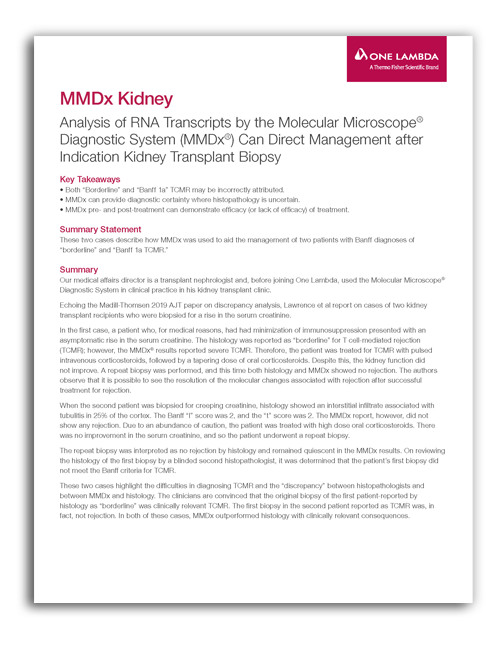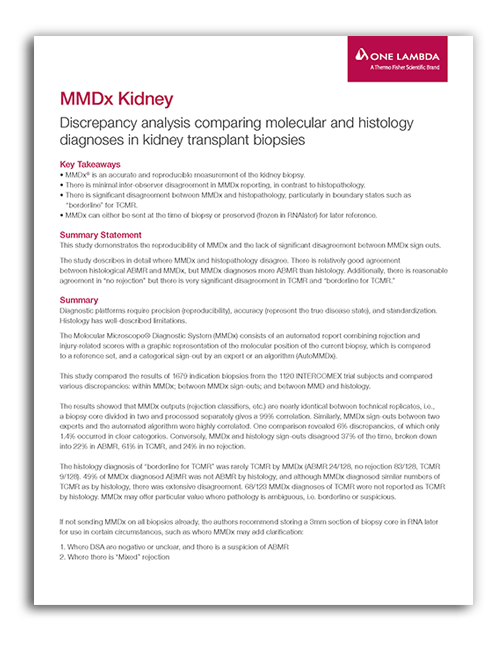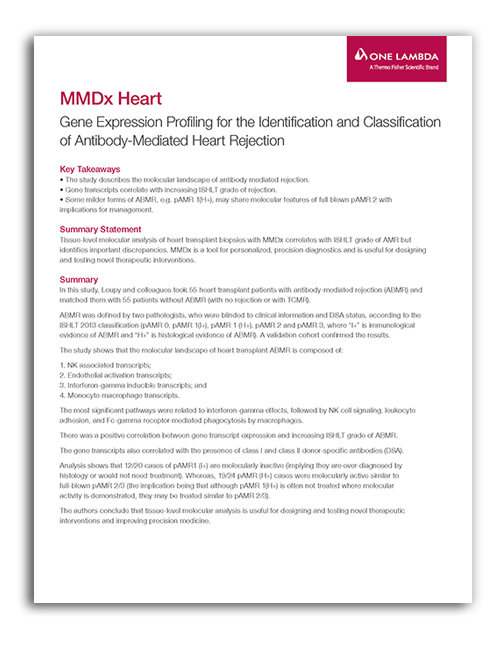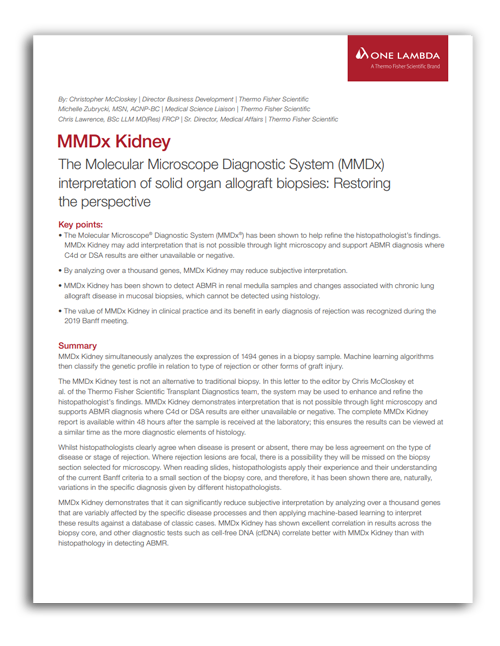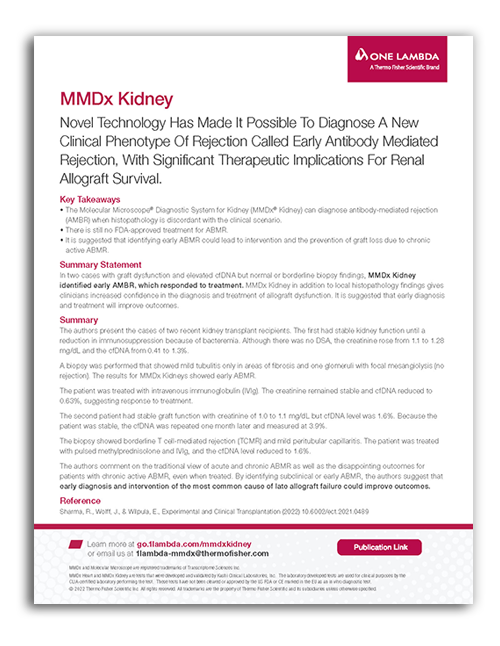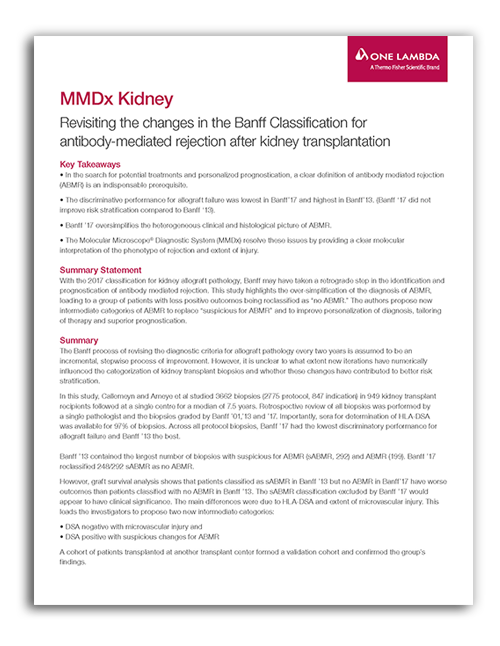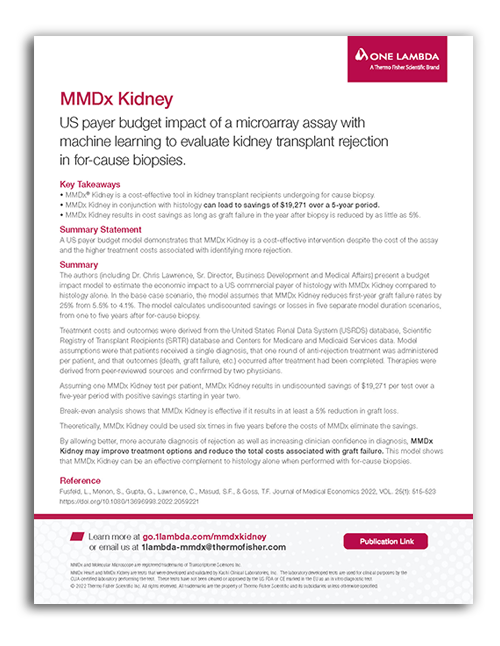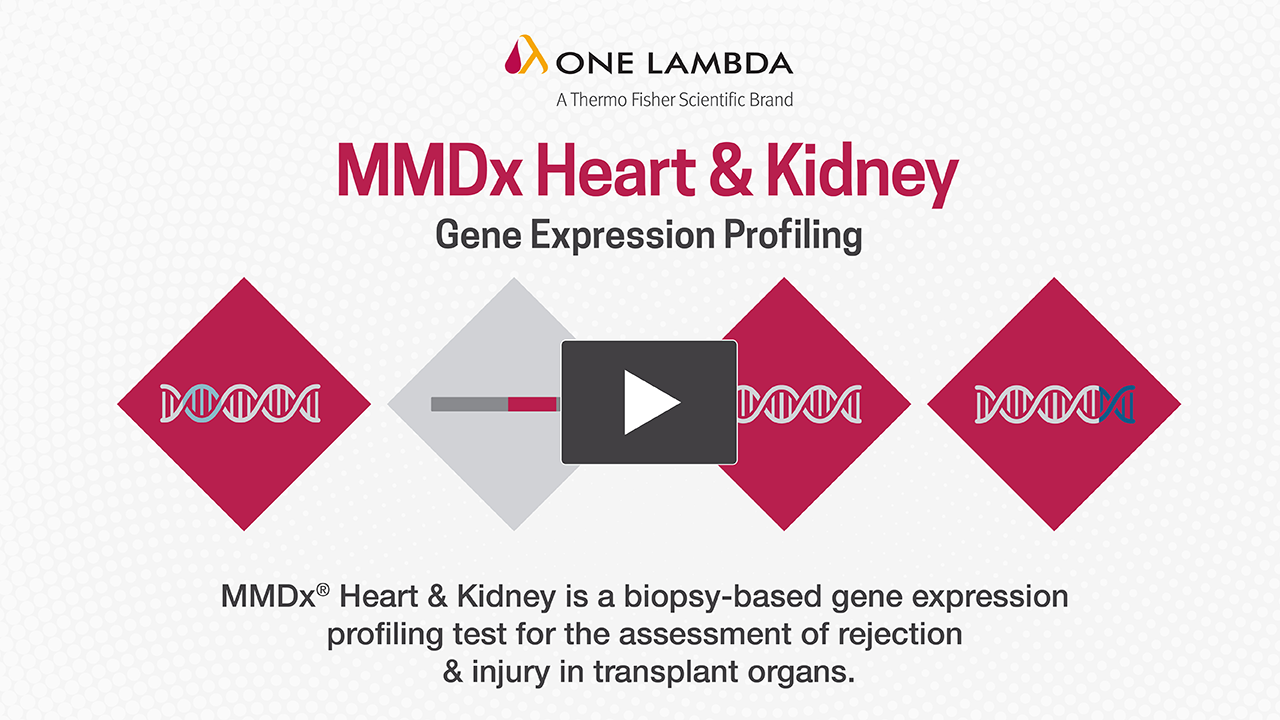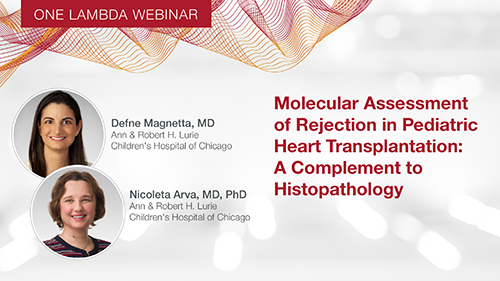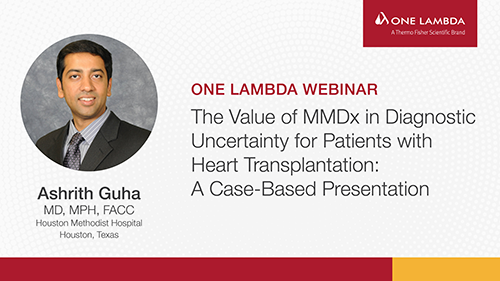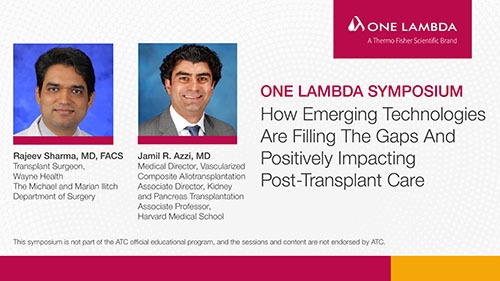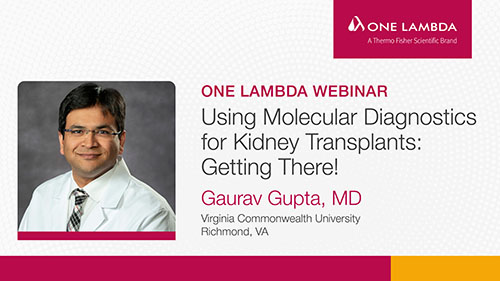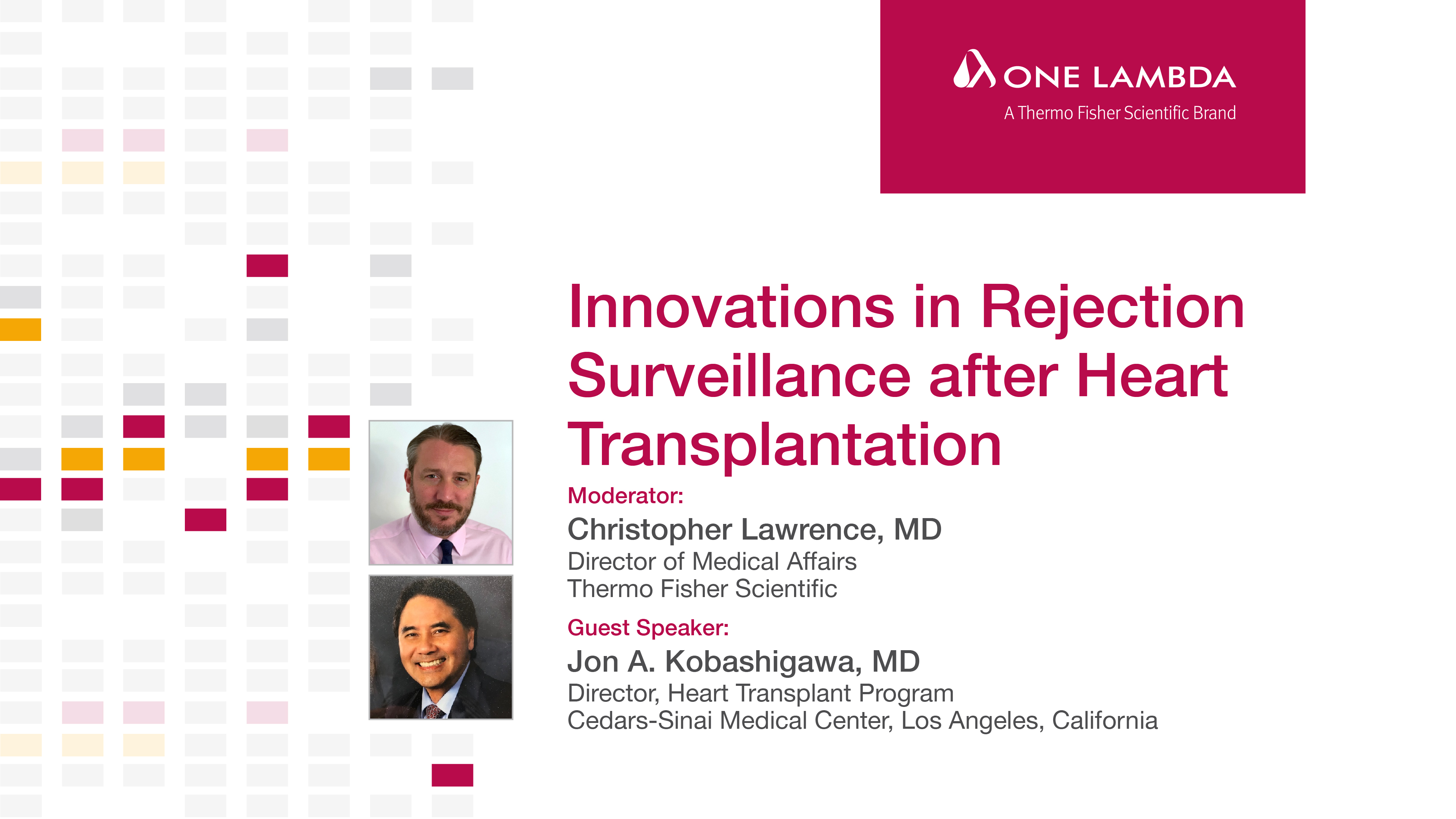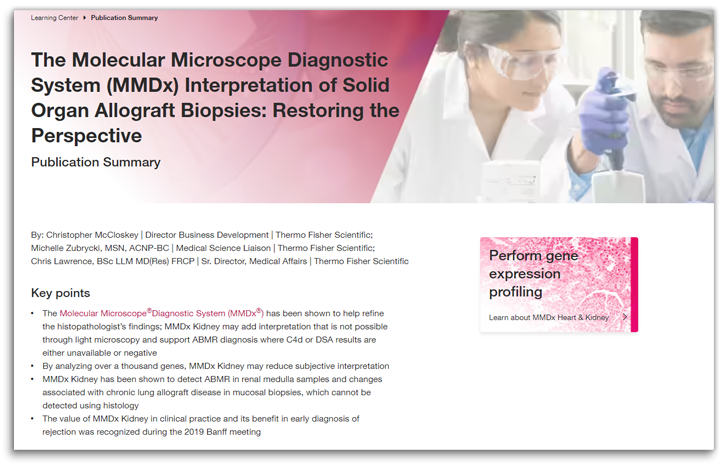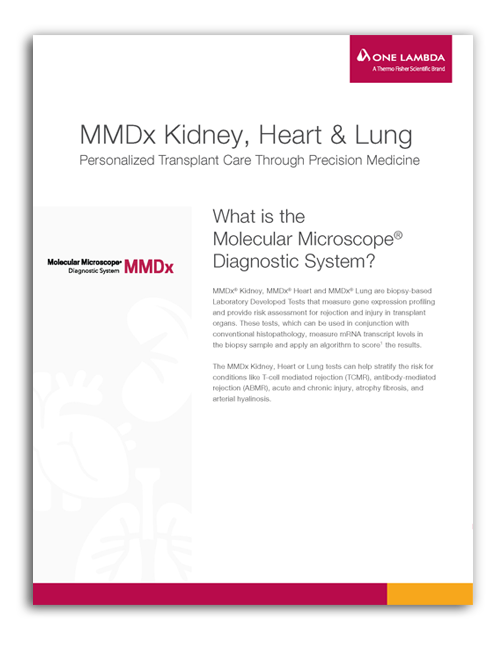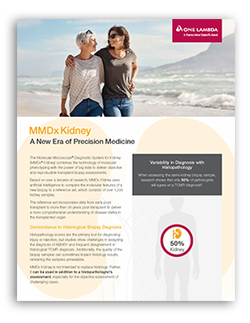

Dr. Christopher Lawrence, BSc MBBS LLM MD(Res) MRCP(nephrology) FRCP
Director of Medical Affairs,
Thermo Fisher Scientific
On-Demand Symposia & Webinars
Molecular Assessment of Rejection in Pediatric Heart Transplantation: A Complement to Histopathology

Moderator

Heather Manion, MSN, RN, CCTC
Medical Science Liaison
Thermo Fisher Scientific
Speakers

Defne Magnetta, MD
Pediatric Cardiologist
Ann & Robert H. Lurie Children’s Hospital of Chicago
Chicago, Illinois, USA

Nicoleta Arva, MD, PhD
Pediatric Pathologist
Ann & Robert H. Lurie Children’s Hospital of Chicago
Chicago, Illinois, USA
Please join Dr. Defne Magnetta and Dr. Nicole Arva at an upcoming webinar which will review the ISHLT grading system for acute rejection in pediatric heart transplantation, the strengths and pitfalls of histopathology, and how the MMDx™ Heart test can help provide a more comprehensive and accurate diagnosis by combining the power of traditional histopathology with molecular techniques to identify specific genetic and molecular changes associated with diseases.
During this webinar, we’ll discuss how MMDx Heart can provide valuable information in cases of severe cellular rejection following an organ transplant, helping to manage antibody-mediated rejection (ABMR), guide treatment decisions, and improve patient outcomes.
Learning Objectives:
- To review the ISHLT grading system for acute rejection in pediatric heart transplantation and discuss the strengths and pitfalls of histopathology
- To discuss the additional information gained from MMDx in cases of severe cellular rejection
- To illustrate the way in which MMDx and histopathology utilized together may help guide management of AMR
Webinar October 2022
Value of MMDx in Diagnostic Uncertainty in Patients with Heart Transplantation: A Case-Based Presentation
Guest Speaker:
Ashrith Guha, MD, MPH, FACC
Houston Methodist Hospital | Houston, TX
Heart transplant patients often have scenarios where in the clinical presentation and pathological diagnosis on biopsy are discrepant. We will explore the utility of MMDx ® Heart in such patients through a case-based discussion. This webinar will identify the types of scenarios where gene expression profiling is useful for assessing risk of injury or rejection and will discuss the clinical application in follow-up testing.
Learning Objectives:
- Identify Scenarios where in MMDx Heart could be useful
- Introduction to diagnostic reporting of MMDx Heart and their interpretation as relevant to clinical presentation
- Utility of follow up testing in MMDx Heart
ATC 2022
How Emerging Technologies Are Filling The Gaps And Positively Impacting Post-Transplant Care
Once again, the American Transplant Congress delivered an excellent program for all attendees, and we are pleased to have played a part in its success. A highlight for us was our symposium, “How Emerging Technologies are Filling the Gaps and Positively Impacting Post-Transplant Care.” During the presentation, Dr. Rajeev Sharma and Dr. Jamil Azzi discussed how new molecular solutions can provide clinical utility and enhance the patient experience. Additionally, our patient advocate, Valen Keefer, provided a unique perspective to consider. If you missed the live presentation, you can view a recording of this talk and others on our Learning Center!
Guest Speakers:
Jamil R. Azzi, MD
Medical Director, Vascularized Composite Allotransplantation
Associate Director, Kidney and Pancreas Transplantation
Associate Professor
Harvard Medical School
Rajeev Sharma, MD, FACS
Transplant Surgeon
Wayne Health
The Michael and Marian Ilitch Department of Surgery
Webinar May 2022
Using Molecular Diagnostics for Kidney Transplants: Getting There!
Speaker:
Gaurav Gupta
Medical Director of the Kidney Transplant Program | Virginia Commonwealth University
This presentation focused on the use of gene expression profiling for the management of kidney transplant biopsies.
Learning Objectives:
- Recognize the significance of molecular diagnostic methods in kidney transplantation
- Understand the complementary diagnostic value of gene expression in kidney transplant biopsies in addition to traditional histology
- Understand how to incorporate the molecular microscope results into a management plan
ISHLT 2021
Innovations in Rejection Surveillance after Heart Transplantation
Moderator:
Dr. Christopher Lawrence, BSc MBBS LLM MD(Res) MRCP(nephrology) FRCP
Director of Medical Affairs | Thermo Fisher Scientific
Guest Speaker:
Jon A. Kobashigawa, MD │ Director, Heart Transplant Program │Cedars-Sinai Medical Center, Los Angeles, California
For post-transplant management in heart patients, the endomyocardial biopsy is considered the gold standard to detect acute rejection. However, research has found that in biopsy assessments for rejection, concordance among expert pathologists is less than 67%. This presentation will explore case studies and the clinical use of novel technologies, including molecular diagnostic testing of intragraft mRNA transcripts and donor-derived cell-free DNA, for more accurate diagnosis of cellular and antibody-mediated rejection, acute rejection, and cardiac allograft vasculopathy (CAV).

Featured Publication
Restoring Perspective on SOT Biopsy Testing and Analysis



Case Study
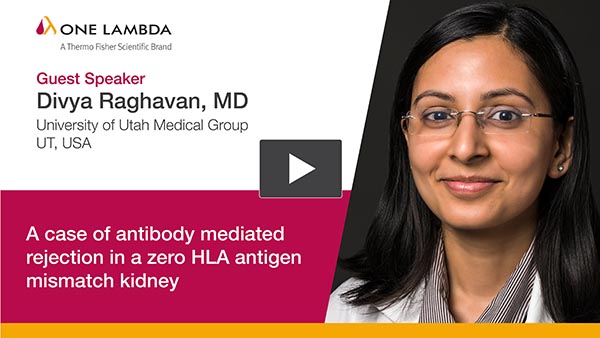
A Challenging Diagnosis in Kidney Transplantation: A case study on how the Molecular Microscope Diagnostic System for Kidney (MMDx Kidney) provides added confidence and alters management
Read the full case study titled "A Challenging Diagnosis in Kidney Transplantation: A case study on how the Molecular Microscope provides added confidence and alters management" at: go.1lambda.com/video-rgvn2021
Featured Publication
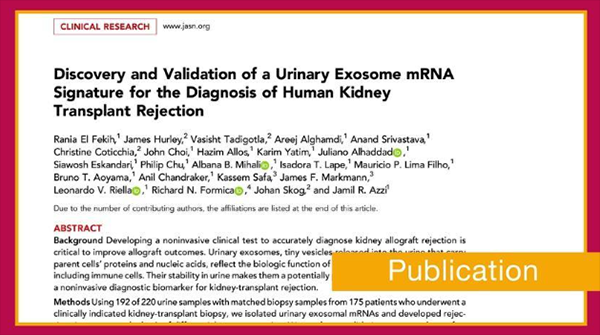
New Research: Discovery and Validation of a Urinary Exosome mRNA Signature for the Diagnosis of Human Kidney Transplant Rejection
Read the full publication at: jasn.asnjournals.org/content/32/4/994
Publication Summary
